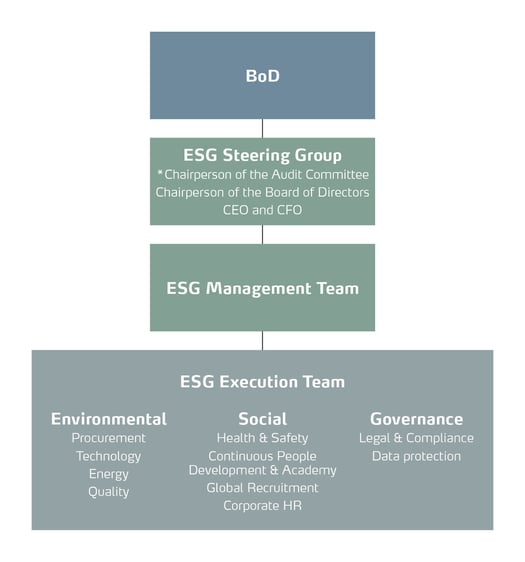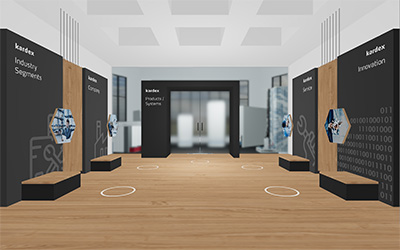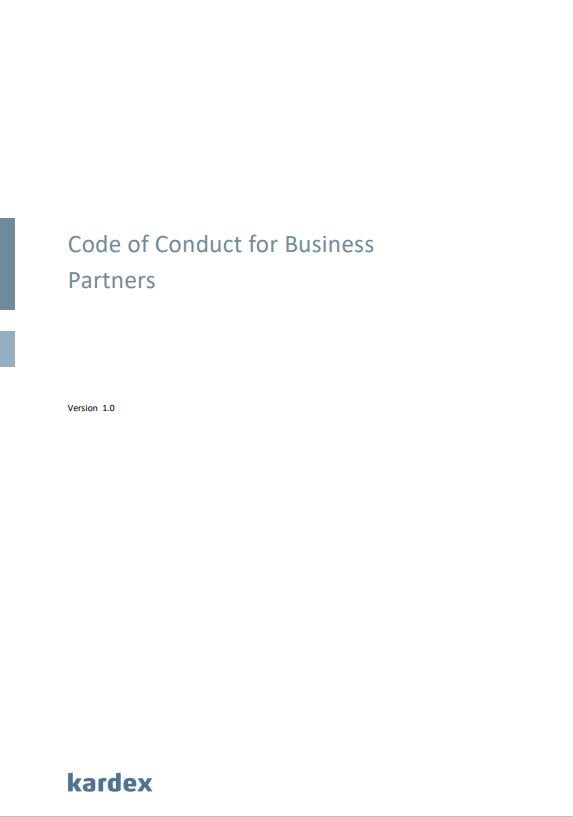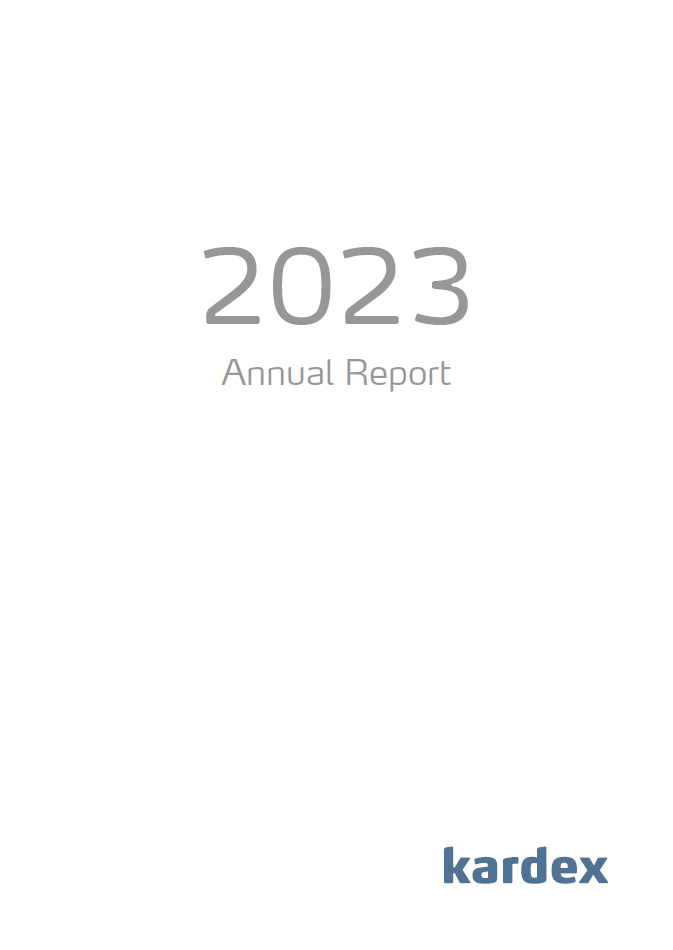Sustainability
Sustainability stands for the careful and responsible use of resources. Kardex views the commitment to sustainability as an opportunity and a basis for future success.
Sustainability is of central importance at Kardex, influencing interactions with customers, suppliers, and other stakeholders. The products and systems offered are inherently sustainable, reflecting the essential synergy between long-term business success and the core principles of sustainability.
Inherent sustainability of Kardex’ products and systems
As a leading global provider of automated storage and retrieval systems, Kardex is dedicated to delivering solutions that are both innovative and sustainable. The inherent sustainability of Kardex’ products and systems stems from several key factors:
-

Area and space optimization
Kardex' products and systems offer compact, high-density solutions that significantly save floor space compared to conventional racks and shelving. Depending on the specific product or system, space savings range between 65% and 85%. This reduction not only lessens the environmental footprint but also reduces energy use and, consequently, CO2 emissions.
-

Energy efficiency
Designed for optimal energy efficiency, Kardex’ products and systems incorporate innovative technologies and optimized routing to reduce energy needs for transportation. Features such as standby modes and optimized operational power consumption further enhance the energy efficiency of Kardex’ products and systems.
-

Resource optimization
Kardex’ products and systems streamline processes, leading to improved resource management. Precise inventory management helps avoid understocking and reduces waste due to overstocking.
-

Lifecycle sustainability
Kardex' products and systems are of the highest quality and designed to stay current through upgrades and modernization over their entire service life. This results in significantly longer life cycles compared to many competitors’ products.
-

Adaptability and scalability
Kardex ensures that its products and systems are adaptable to the customers' evolving needs. This adaptability helps minimize resource strain and waste during scaling operations.
-

Recyclability
Predominantly composed of recyclable materials, Kardex’ products and systems allow for an efficient decommissioning process. Kardex offers the service of decommissioning products or systems and then reutilizing or recycling them.
-

Carbon footprint reduction
Kardex is committed to reducing travel-related carbon emissions. One contributing factor in achieving this goal is by offering remote diagnostics, remote services, and increasingly, preventive maintenance. This approach significantly reduces the need for ad hoc on-site service interventions, saving considerable travel mileage.
-

Ergonomics
Kardex’ products and systems are meticulously crafted, adhering to the goods-to-person principle with a robust emphasis on ergonomics. This approach is instrumental in safeguarding the well-being of order pickers by ensuring the delivery of goods at an ergonomically optimal height.
Area and space optimization
Kardex' products and systems offer compact, high-density solutions that significantly save floor space compared to conventional racks and shelving. Depending on the specific product or system, space savings range between 65% and 85%. This reduction not only lessens the environmental footprint but also reduces energy use and, consequently, CO2 emissions.
Energy efficiency
Designed for optimal energy efficiency, Kardex’ products and systems incorporate innovative technologies and optimized routing to reduce energy needs for transportation. Features such as standby modes and optimized operational power consumption further enhance the energy efficiency of Kardex’ products and systems.
Resource optimization
Kardex’ products and systems streamline processes, leading to improved resource management. Precise inventory management helps avoid understocking and reduces waste due to overstocking.
Lifecycle sustainability
Kardex' products and systems are of the highest quality and designed to stay current through upgrades and modernization over their entire service life. This results in significantly longer life cycles compared to many competitors’ products.
Adaptability and scalability
Kardex ensures that its products and systems are adaptable to the customers' evolving needs. This adaptability helps minimize resource strain and waste during scaling operations.
Recyclability
Predominantly composed of recyclable materials, Kardex’ products and systems allow for an efficient decommissioning process. Kardex offers the service of decommissioning products or systems and then reutilizing or recycling them.
Carbon footprint reduction
Kardex is committed to reducing travel-related carbon emissions. One contributing factor in achieving this goal is by offering remote diagnostics, remote services, and increasingly, preventive maintenance. This approach significantly reduces the need for ad hoc on-site service interventions, saving considerable travel mileage.
Ergonomics
Kardex’ products and systems are meticulously crafted, adhering to the goods-to-person principle with a robust emphasis on ergonomics. This approach is instrumental in safeguarding the well-being of order pickers by ensuring the delivery of goods at an ergonomically optimal height.
ESG Organization
Kardex has formally integrated sustainability management into the management structures through the ESG Steering Group. The members of this Steering Group include the Chairperson of the Audit Committee, the Chairperson of the Board of Directors, as well as the CEO and CFO. The ESG Steering Group is led by the Chairperson of the Audit Committee and reports to the Board of Directors.

*Chairperson of the ESG Steering Group
ESG in the supply chain
Kardex' global supply network plays an important role in enhancing the value and quality of the products and systems. Pursuant to this Code of Conduct, Kardex expects its business partners to adhere to legal requirements, ethical business practices, and standard requirements relating to labor, health, safety, environmental protection, and management systems. This also includes ensuring that their operations within Kardex' sphere of influence do not adversely affect fundamental human rights, as outlined in the United Nations's Bill of Rights and the International Labor Organization's (ILO) core conventions.



